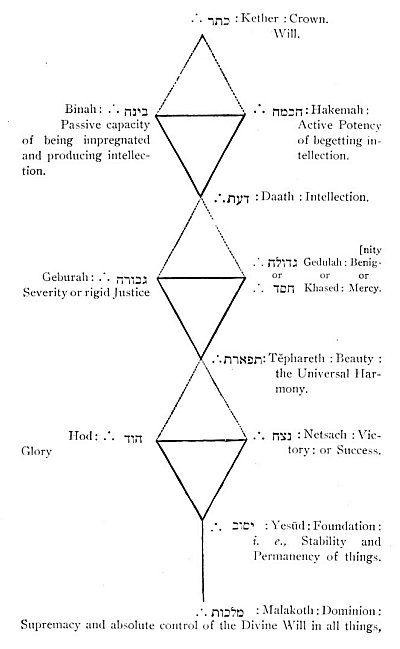The speculators of the venerable East, who had conceived the idea of an Eternal Being superior to all affection and change, in his own sufficiency enjoying a plenitude of serene and independent bliss, were led to inquire into the apparently inconsistent fact of the creation of the world. Why, they asked, did He, who required nothing external to Himself to complete His already-existing Perfection, come forth out of His unrevealed and perfect existence, and become incorporated in the vicissitudes of nature? The solution of the difficulty was Love. The Great Being beheld the beauty of His own conception, which dwelt with Him alone from the beginning, Maia, or Nature’s loveliness, at once the germ
p. 684
of passion and the source of worlds. Love became the universal parent, when the Deity, before remote and inscrutable, became ideally separated into the loving and the beloved.
And here again recurs the ancient difficulty; that, at whatever early period this creation occurred, an eternity had previously elapsed, during which God, dwelling alone in His unimpeached unity, had no object for His love; and that the very word implies to us an existing object toward which the love is directed; so that we cannot conceive of love in the absence of any object to be loved; and therefore we again return to this point, that if love is of God’s essence, and He is unchangeable, the same necessity of His nature, supposed to have caused creation, must ever have made His existence without an object to love impossible: and so that the Universe must have been co-existent with Himself.
The questions how and why evil exists in the Universe: how its existence is to be reconciled with the admitted wisdom and goodness and omnipotence of God; and how far man is a free agent, or controlled by an inexorable necessity or destiny, have two sides. On one, they are questions as to the qualities and attributes of Got; for we must infer His moral nature from His mode of governing the Universe, and they ever enter into any consideration of His intellectual nature: and on the other, they directly concern the moral responsibility, and therefore the destiny, of man. All-important, therefore, in both points of view, they have been much discussed in all ages of the world, and have no doubt urged men, more than all other questions have, to endeavor to fathom the profound mysteries of the Nature and the mode of Existence and action of an incomprehensible God.
And, with these, still another question also presents itself: whether the Deity governs the Universe by fixed and unalterable laws, or by special Providences and interferences, so that He may be induced to change His course and the results of human or material action, by prayer and supplication.
God alone is all-powerful; but the human soul has in all ages asserted its claim to be considered as part of the Divine. “The purity of the spirit,” says Van Helmont, “is shown through energy and efficaciousness of will. God, by the agency of an infinite will, created the Universe, and the same sort of power in an inferior degree, limited more or less by external hindrances, exists in all spiritual beings.” The higher we ascend in antiquity, the more
p. 685
does prayer take the form of incantation; and that form it still in a great degree retains, since the rites of public worship are generally considered not merely as an expression of trust or reverence, as real spiritual acts, the effect of which is looked for only within the mind of the worshipper, but as acts from which some direct outward result is anticipated, the attainment of some desired object, of health or wealth, of supernatural gifts for body or soul, of exemption from danger, or vengeance upon enemies. Prayer was able to change the purposes of Heaven, and to make the Devs tremble under the abyss. It exercised a compulsory influence over the gods. It promoted the magnetic sympathy of spirit with spirit; and the Hindu_ and Persian liturgies, addressed not only to the Deity Himself, but to His diversified manifestations, were considered wholesome and necessary iterations of the living or creative Word which at first effectuated the divine will, and which from instant to instant supports the universal frame by its eternal repetition.

Moe is the founder of GnosticWarrior.com. He is a father, husband, author, martial arts black belt, and an expert in Gnosticism, the occult, and esotericism.





